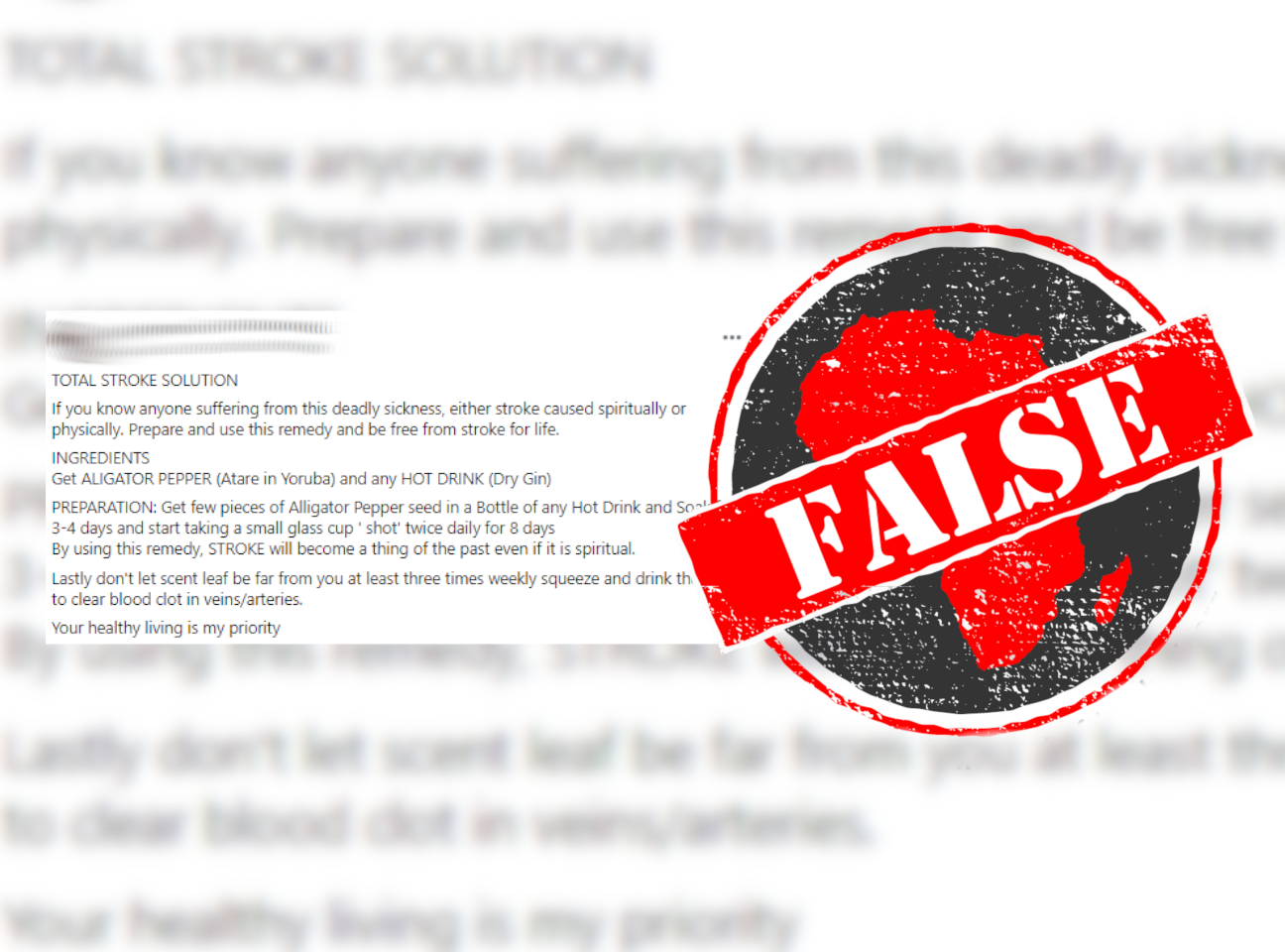A Facebook post shared in Nigeria claims a mixture of alligator pepper and gin prevents stroke.
“If you know anyone suffering from this deadly sickness, either stroke caused spiritually or physically. Prepare and use this remedy and be free from stroke for life,” it reads.
The post describes how to prepare and take the mixture, adding that “by using this remedy, stroke will become a thing of the past”.
Alligator pepper, which the post says is called atare in Yoruba, is also known as grains of paradise or Aframomum melegueta. The post says to add this to “any HOT DRINK (Dry Gin)”.
But is this mixture a remedy for stroke? We checked.

‘Disregard message, treat stroke as an emergency’
Stroke is a condition where blood vessels in the brain ruptures or when there is a blockage preventing oxygen-rich blood from getting to the brain.
Cerebrovascular accidents, or stroke, are “the second leading cause of death and the third leading cause of disability globally”, according to the World Health Organization.
The global health agency says risk factors for stroke include hypertension, elevated lipids, diabetes and other lifestyle factors, such as smoking, low physical activity, unhealthy diet and obesity.
Africa Check spoke to Ikenna Onwuekwe, professor of clinical neurology and internal medicine at the University of Nigeria in southeastern Nigeria.
“There is no place for alligator pepper or any such concoction in the modern management of stroke. These are claims that have not been subjected to research,” he said.
“Stroke is a very serious condition, it is an acute medical emergency, and is approached with the same urgency with which we approach a heart attack.”
Onwuekwe said every minute counts in responding appropriately to an acute stroke case, as the person is at risk of losing more brain function and may die.
Africa Check has previously debunked similar claims that home-made remedies can cure stroke. These should all be disregarded.
Republish our content for free
For publishers: what to do if your post is rated false
A fact-checker has rated your Facebook or Instagram post as “false”, “altered”, “partly false” or “missing context”. This could have serious consequences. What do you do?
Click on our guide for the steps you should follow.
Publishers guideAfrica Check teams up with Facebook
Africa Check is a partner in Meta's third-party fact-checking programme to help stop the spread of false information on social media.
The content we rate as “false” will be downgraded on Facebook and Instagram. This means fewer people will see it.
You can also help identify false information on Facebook. This guide explains how.


Add new comment